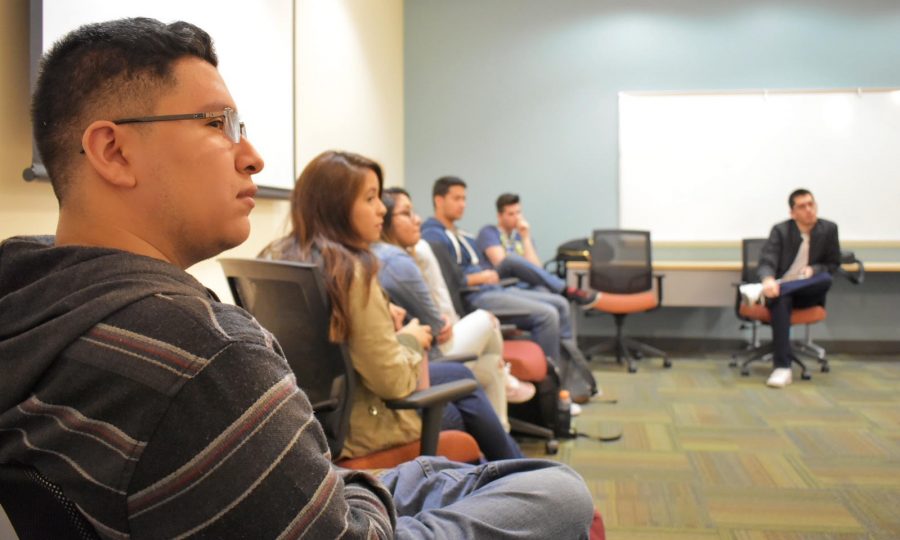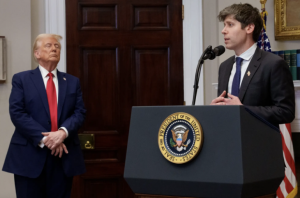Exploring what is next after the inauguration
February 13, 2017
Students and faculty gathered on Jan. 26 to discuss President Donald Trump’s inauguration and recent executive actions.
Led by ASI Vice President of Student and University Affairs Christopher Morales, the conversation focused on policies, fears and the campus environment in a SBSB classroom.
Speakers advocated having civil conversations when disagreements occur, and talked about what actions going forward would be helpful.
“Because so much is still up in the air… it’s still difficult to know what to advocate for and what to act [on]… so much is at stake,” Morales said,
During his campaign, Trump made many promises, including dissolving the Affordable Care Act, building a wall along the Mexico-US border to be paid by Mexico, and suggesting a “ban on all Muslims” and a lengthier vetting process for immigrants.
Morales said none of the recent Trump administration actions came as a surprise.
“This was the rhetoric that was followed throughout the campaign trail,” Morales said.
He said he does recognize students’ fear of uncertainty. With the repeal of the Deferred Action for Childhood Arrivals (DACA) being possible, the impact on campus would be real, he said.
Jasmine Dimagiba, a Political Science major, said she worried about fake news versus factual news and how difficult it is for some people to tell the difference.
Conversations have evolved from debating truths versus opinions into defending sources and who is more right, she said.
Stephen Nichols, chair of the Political Science Department, said he feels obligated as a college professor to stand by truth and reality, even if it makes Trump supporters uncomfortable. This does not mean he discourages differences in opinion, he said.
With the current administration, however, Nichols said he finds himself unable to defend its actions and due to its “inventing a reality that does not exist and creating policies that are to solve that non-existent reality’s issues.”
Political Science professor Benjamin Nienass built upon Nichols’ points: “The campus must strive to reflect on how we achieve inclusivity when inviting others into conversations.”
Neinass reminded students to not give up on “evidence based and critical thinking arguments.”
Although college campuses hold a reputation for being left-leaning, participants agreed that it wasn’t a partisan issue to defend facts versus fiction.
“As we are the next generation of students who will be in that spotlight… regardless of our own opinions, we [should] still hold to fact-based evidence,” Morales said.






